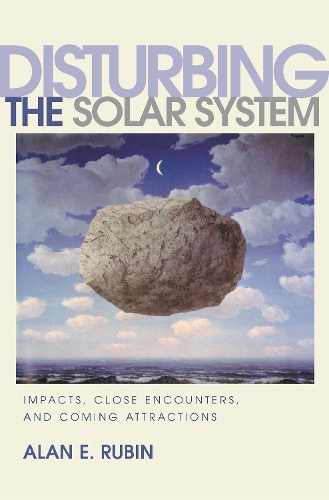
Disturbing the Solar System: Impacts, Close Encounters, and Coming Attractions
(Paperback)
Publishing Details
Disturbing the Solar System: Impacts, Close Encounters, and Coming Attractions
By (Author) Alan E. Rubin
Princeton University Press
Princeton University Press
25th May 2004
United States
Classifications
Professional and Scholarly
Non Fiction
Popular astronomy and space
523.2
Physical Properties
Paperback
384
Width 152mm, Height 235mm
539g
Description
The solar system has always been a messy place in which gravity wreaks havoc. Moons form, asteroids and comets crash into planets, ice ages commence, and dinosaurs disappear. By describing the dramatic consequences of such disturbances, this authoritative and entertaining book reveals the fundamental interconnectedness of the solar system - and what it means for life on Earth. Here, Alan Rubin provides succinct and up-to-date accounts of the energetic interactions among planetary bodies, the generation of Earth's magnetic field, the effects of other solar-system objects on our climate, the heating of asteroids, and the origin of the mysterious tektites. Along the way, Rubin introduces us to the individual scientists - including the famous, the obscure, and the newest generation of researchers - who have enhanced our understanding of the galactic neighborhood.
Reviews
"Splendid... Most writers make the pursuit of science seem purely mechanistic, devoid of characters or human foibles. Rubin is a welcome contrast."--Duncan Steel, New Scientist "The book is scientifically accurate, and the writing is quietly competent... Nearly half of [Rubin's] chapters represent his research interests in meteorites, asteroids and impact cratering, which are important but not yet over-told tales... The book ends with the now de rigueur chapters on astrobiology, including a fascinating look at how humans might react if aliens were detected."--Charles A. Wood, Nature "From a concise but complete description of the origin of the solar system to current thinking about the search for extraterrestrial intelligence and much in between, this is an excellent read about our local astronomical neighborhood."--Choice "This is a terrific book... What really sets [Rubin's] book apart is the perspective of an active researcher. Rubin well understands that science is not an answer, but a journey... This book not only provides a lesson on the inner workings of science, but also a broad overview of the importance of meteoritics and planetary science."--Timothy J. McCoy, Eos
Author Bio
Alan E. Rubin is a research geochemist in the Institute of Geophysics and Planetary Physics at the University of California, Los Angeles. He is the author of more than 120 scientific papers. In honor of his research contributions, asteroid 6227 was named Alanrubin in 2002.
